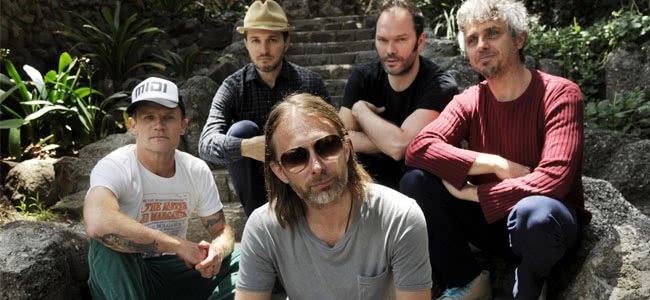Spotify has responded to Thom Yorke and producer Nigel Godrich pulling their music from the streaming service in protest at the Swedish-based music platform’s business model that pays artists “fuck all”, while claiming it is “bad for new music.”
In a series of tweets over the weekend, Godrich and the Radiohead frontman announced they’d pulled three albums from Spotify – Atoms For Peace’s Amok, The Eraser by Thom Yorke, and the self-titled debut from Ultraísta – in a boycott of the service as the “same old industry bods [try] to get a stranglehold;” while Yorke added: “Make no mistake new artists you discover on #Spotify will no get paid. meanwhile shareholders will shortly being rolling in it.”
As NME reports, Spotify have responded to the critiques in a publicly issued statement that reads: “Spotify’s goal is to grow a service which people love, ultimately want to pay for, and which will provide the financial support to the music industry necessary to invest in new talent and music.”
“We want to help artists connect with their fans, find new audiences, grow their fan base and make a living from the music we all love,” continues the statement.
“Right now we’re still in the early stages of a long-term project that’s already having a hugely positive effect on artists and new music. We’ve already paid $500 million to rightsholders so far and by the end of 2013 this number will reach $1 billion. Much of this money is being invested in nurturing new talent and producing great new music,” concludes Spotify’s response.
Nigel Godrich swiftly took to his twitter account once again to respond in kind to Spotify’s public statement. “So Spotify say they have generated $500 million dollars for ‘license holders’,” begins the series of ongoing posts. “The way that Spotify works is that the money is divided up by percentage of total streams. Big labels have massive back catalogues so their 40 year old record by a dead artist earns them the same slice of the pie as a brand new track by a new artist.”
The Atoms For Peace member also claims a conspiracy between record label majors and streaming services.
The big labels did secret deals with spotify and the like in return for favourable royalty rates.
— nigel godrich (@nigelgod) July 15, 2013
Godrich goes on to say that Spotify’s business model “massively favours the larger companies with big catalogues,” ensuring “they get the big massive slice of the pie (that $500 million) and the smaller producers and labels get pittance for their comparatively few streams. This is what’s wrong. Catalogue and new music cannot be lumped in together,” he says.
Godrich’s issue is that Spotify’s model is not sustainable, relying on new artists to “make money in the future,” but “pays pittance to the new artist right now. An inconvenient fact which will keep coming up.”
“I feel a responsibility to speak up when I see something going on which I think is unfair,” he continues. “I’m not bitching about not getting paid. It’s about standing up for other artists rights. It’s up to streaming providers to come back with a better way of supporting new music producers.”
Thom Yorke once again backed up his fellow Atoms For Peace bandmate; the Radiohead frontman writing:
for me In Rainbows was a statement of trust .people still value new music ..that's all we'd like from Spotify. don't make us the target.
— Thom Yorke (@thomyorke) July 15, 2013
Meanwhile, as Billboard points out, Spotify CEO Daniel Ek took to his twitter account to defend Spotify’s business model saying streaming “is now a very big revenue source” for artists and industry, while emphasising that its free streaming model showed no real signs of cannibalising traditional revenues like physical sales and paid digital downloads.
Ek pointing to recent successes like Jay-Z’s Magna Carta Holy Grail, Daft Punk’s Random Access Memories, “and others” (likely Justin Timberlake and Mumford & Sons) which all “did great while pre streaming their music.” Adding that:
Love how streaming is bad for artists, now is changed to streaming is bad for new artists. I wonder what next one is…
— Daniel Ek (@eldsjal) July 15, 2013

































